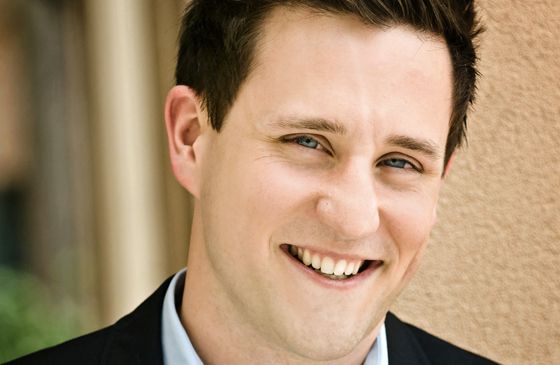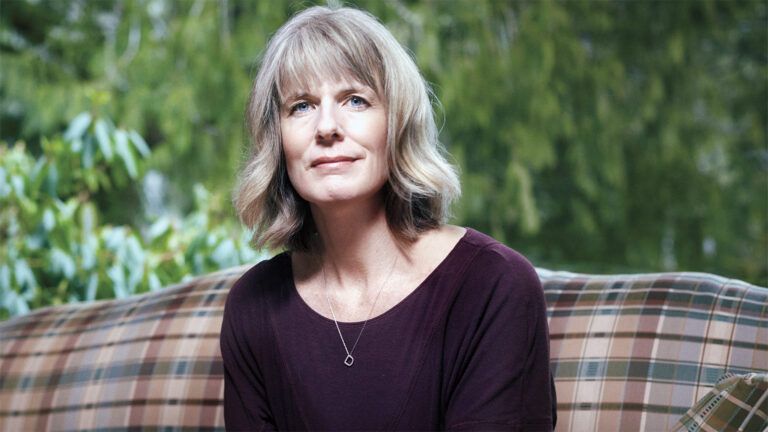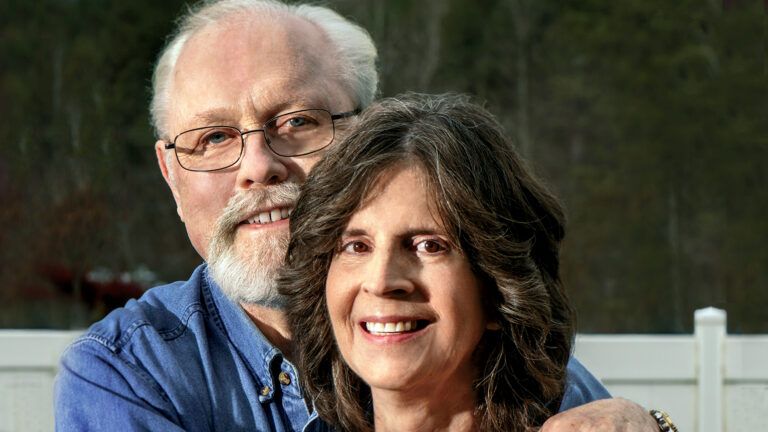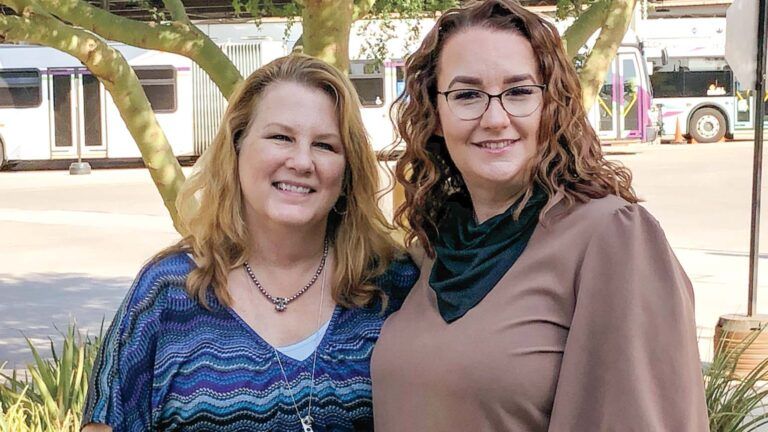I stood at the starting gate on the crest of the peak at the Torino, Italy, Olympic slalom course, feeling the icy wind cut through my racing suit. This is it, I thought. Far, far below in the crowd of 4,000 at the finish line stood my parents.
Back home in Virginia, relatives and friends were watching a live feed over the internet. The gate snapped open. I pushed off on my poles and crouched over the tip of my ski, rocketing toward the first gate.
That’s right, my single ski. I’m missing my left leg. That’s why I was here, competing in the 2006 Paralympics.
When I was nine back in Bridgewater, Virginia, skiing was the last thing on my mind. I mean, we lived in the South, for crying out loud. My dream was to play soccer. I wanted to be Pele or Beckham.
I wanted to be like my Sunday school classmate Aaron who showed up at church one morning in green shorts, a matching jersey and knee-high socks instead of the white-collared shirt and scratchy dress pants I had to wear.
“I’m on a soccer team,” he bragged. As soon as Sunday school was finished, I ran down all three flights of stairs to find my mom. “I want to play on a soccer team too,” I said. “Can I, please, please, please?”
She gave the standard mom response: “We’ll think about it.” But then the pain started in my leg. I didn’t make a big deal of it at first. I just bit my lip and said nothing. Mom had agreed to let me play soccer, and I wasn’t going to let anything get in the way of opening day.
But my leg got to hurting so much I couldn’t keep it from my parents any longer. “Probably just growing pains,” Mom said. “Lots of kids have them.”
I wasn’t growing that fast. The pain got worse. They took me to the doctor, who said it looked like I had an infection in my leg—something that he could easily treat with surgery and medicine. “You’ll be in a cast for a few weeks,” he said. “Then you’ll be fine.”
I awoke from surgery, groggy and feeling very strange. Something wasn’t right. I didn’t know what, just that deep down inside I knew something terrible was wrong. I raised my head from the pillow to check my leg. No cast. Just bandages. What happened?
The door opened and my parents walked in. Their eyes were red. Mom grabbed my hand. Dad sat down beside me. “Joshua, the doctors found cancer in your leg,” Dad said.
I might have only been nine years old but I knew about cancer. People lost their hair when they had cancer and they were in the hospital for a long time. Sometimes they died. I burst into tears. Mom and Dad started crying too.
The doctor came in and explained in a quiet voice that I would have to have chemotherapy treatments for a year. It meant being on crutches and coming back to the hospital for a week every three weeks for treatments. It meant giving up the top bunk to my little brother, Matthew.
“Am I going to die?” I asked. He gave it to me straight. “You have a 50-50 chance of survival,” he said. There were other things the doctor said, but I had stopped listening. Fifty-fifty. That’s just a coin toss.
For the next three months I lived in constant pain—from the chemotherapy and the never-ending ache in my leg. One day I went to Mom. “I want you to shave off all my hair.”
She looked at me quizzically, then her eyes filled up. She understood. I didn’t want my hair falling out in clumps, finding more of it on the pillow every morning.
Matthew shaved his hair off. All my friends at Sunday school did too. The only good I could see of having cancer was I didn’t have to wear a button-down shirt and my wool dress pants to church. I hobbled around on crutches in a T-shirt, my leg in a brace.
I was determined to get better. That’s what everybody was praying for. I’d get the top bunk back from my brother and I’d be able to run and jump again. To be a regular kid again.
Then one night we were driving home from a dinner out. “I can’t wait to play soccer,” I said as Dad pulled the minivan into the driveway. Mom and Dad looked at each other in silence and sent Matthew inside.
I watched as my brother opened the front door and shut it behind him. “When can I start walking again?” I asked.
Mom turned around from the front seat to face me. “We’ve been talking with the doctors, and the chemotherapy hasn’t shrunk the cancer in your leg,” she said.
“What are they going to do?” I demanded, both knowing and fearing the answer.
She spoke very slowly, “They will have to amputate, Josh.” It was as though all of the oxygen had been sucked out of the van. I almost gagged. “No! I don’t want them to cut my leg off!” I yelled. I’d be like a cripple in a wheelchair I’d seen at the hospital. No, no, no! I was only a kid!
“I’m sorry,” whispered Dad. “I wish they could amputate mine instead.” That night in the bottom bunk I prayed that it wouldn’t happen. If God really loved me, like my Sunday school teacher said, then why couldn’t he save my leg? How could this be part of God’s plan?
I didn’t see how anything good would come of losing my leg. What good was life without my leg? To be honest, I was scared to death.
One evening my parents invited a man over. “Josh, this is Larry.” He’d lost his leg, too, but he showed me how he was able to compete in track meets with his crutches. He was able to go fast, really fast.
I knew I was supposed to be inspired by his example, but in the back of my mind I didn’t think he could understand what it was like to be nine and never get to play on a soccer team.
On the morning of the amputation, Mom and Dad drove me to the hospital in Charlottesville in the minivan. Dad flipped on the local radio station and it was the DJ praying on the air for me.
We listened to him until we crossed the Blue Ridge Mountains and lost the signal, the words echoing in my head, Dear Lord, comfort Josh and his family…
At the hospital I took off the leg brace and laid it on the floor. I bent over and wrapped both arms around my leg. I was hugging it goodbye. I sat like that for a long time, a million thoughts racing through my mind. God, I prayed, please give me a miracle. Please!
A nurse came in and asked me to put on a hospital gown and a pair of brown terrycloth socks with rubber soles. She returned with an anesthesiologist and an empty wheelchair. “Joshua,” asked the doctor, “can we take you to the operating room now?”
“I’d like to walk,” I said.
Following the doctor and the nurse to the operating room, I felt the coolness of the linoleum floor under my terrycloth socks. I knew it would be the last time I walked with both legs and I wanted to remember everything about it.
I wiggled my toes and thought again of Larry the one-legged runner. Maybe there was some future ahead that I couldn’t imagine, that only God could know about. Maybe it would hold something just as wonderful as a pair of knee-length socks and green soccer shorts.
Then I said another prayer to go along with that DJ’s, God, make this okay. I guess I can deal with anything if you help me.The doctors warned me I’d have to spend a long time in the hospital. Yet I healed fast.
In three days I was running laps around the children’s wing on my crutches. In a couple of weeks I was fitted with a prosthesis and getting around pretty good with that. I still had to have more chemotherapy treatments, but the pain wasn’t as severe. Somehow I felt hopeful.
Then one day I was in the hospital elevator where there was a poster for a ski clinic, part of the physical therapy they offered at the hospital. I looked down at my leg. Could I ski? On one leg?
“Can I?” I asked my mom, the same way I’d asked to play soccer. This time I didn’t get the standard mom response.
“Of course,” she said, and again I saw her eyes fill up.
A whole new world began for me. Skiing was totally cool. I loved everything about it, whizzing past two-legged skiers on my single ski, feeling the wind blow past my bald head. Most of all I loved that it helped me forget about—or at least accept—losing my leg at age nine.
I went back to the mountain and made the instructor take me to the steepest trail—a black diamond. I skied as often as I could that season, even competed in a race against other disabled skiers.
After the race a stranger came up to me and said, “I used to coach the U.S. Paralympic Ski Team and I think you show great potential.” He was wearing a red, white and blue U.S. Ski Team jacket and pants to match. That’s what I want, I thought.
My cancer went into remission. You know, I think I felt even happier for my mom and dad than for me. I think what scared me most about dying was how sad they would be.
Meanwhile I entered race after race—falling down more times than I care to tell. I think I spent more time on my butt than on my ski. Finally, at age 22, I made it to the U.S. Paralympic Ski Team.
Rocketing down that mountain in Torino I was wearing a red, white and blue uniform like the man who introduced himself to me after my first race 10 years earlier. It was the greatest rush of my life! Better than anything I ever did on two legs.
I didn’t win a medal. Just being there and having my parents mob me at the end was a reward and an awesome blessing.
I faced fears bigger than most kids ever know, and lost what I thought I couldn’t do without, only to discover a future that was bright and thrilling. I saw how God can take a problem—even cancer—and use it to teach me something about myself I would have never known.
Download your FREE ebook, The Power of Hope: 7 Inspirational Stories of People Rediscovering Faith, Hope and Love






